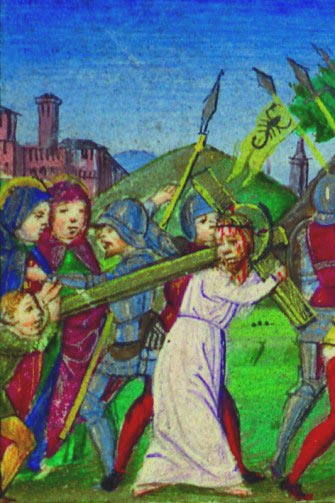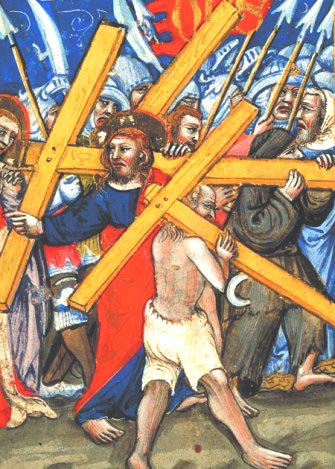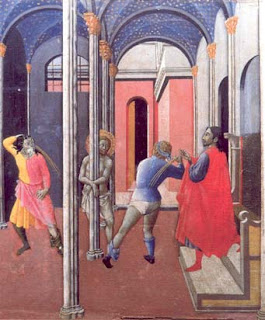 |
| Courtesy Prison Fellowship International |
"
There is neither Jew nor Greek, slave nor free, male nor female, for you are all one in Christ Jesus" - Galatians 3:28 (NIV)
More and more often these days, Christians are accused of being prejudiced against gays and lesbians, women, and those of other faiths. They are accused of wanting to impose a system where the tenets of the Bible are obeyed and enforced with an iron fist.
In some cases, those making those kind of accusations would be correct.
Prejudice such as racism and religious discrimination is one of the biggest ills in the world, even in the church. Bigotry has been used throughout history to enslave people, figuratively through laws or physically through chains, to bring them down, or in general, make them second- or third-class citizens. There is the racism that was prevalent in the United States that in some sectors, still exists today. There is the denial of freedom to choose and practice your own faith that is rampant throughout much of the Middle East and other parts of the globe.
However, in Christ, for those who actually follow His teachings, that prejudice is history, part of a sinful past that has been abolished by the saving blood of our Savior. For those believers who allow Christ to take hold in their lives and actually strive to follow the teachings outlined in God's Word, the Bible, it is a freedom from bigotry that can ensnare both the people they are directing it toward and themselves as well.
Yes, Christians can call out sin amongst in the world. However, they are called to love others as God loved them (see
Ephesians 5:1-2), and follow Christ's example. Throughout the Gospels, Jesus called out the Pharisees and other religious leaders of the day for their sins. However, for others, he simply loved them, welcoming them and healing them of the their physical and spiritual wounds caused either by bad teaching or their own sinfulness.
The evangelist Billy Graham is one such person. During his more than 60 years of active ministry, he was able to preach in closed countries such as Eastern Europe and the former Soviet Union during the days of communism, and meet with leaders such as North Korea's Kim Il Sung and other presidents because he simply lived and preached the saving Gospel of Jesus Christ with no other agenda. During a crusade to India in 1956, his first evangelistic trip to somewhere besides the United States or Western Europe, he made the following the distinction about Jesus, as noted in his autobiography, "Just As I Am:"
"I am not here to tell you about an American or a Britisher or a European. I am here to tell you about a Man Who was born right here in your part of the world, in Asia. He was born at the place where Asia and Africa and Europe meet. He had skin that was darker than mine and He came to show us that God loves all people. He loves the people of India and He loves you."
Jesus Christ is for all people, regardless of who they are and what they have done. All you have do is reach out to Him, because He is reaching for you. If you have questions or would like to talk about Christ, please feel free to
contact me.
Links in the news
- Saint Patrick, whose days we mark on Saturday, was a practical theologian and social activist, a man truly ahead of his time.
- The Islamic-led government in Sudan, following last July's succession by its mainly Christian and animist southern regions, has decreed that all Christians must leave the country or suffer the consequences.
- Mail deliverers in Israel outside of Tel Aviv are refusing to deliver Hebrew-language New Testaments being given away by a unknown group.










